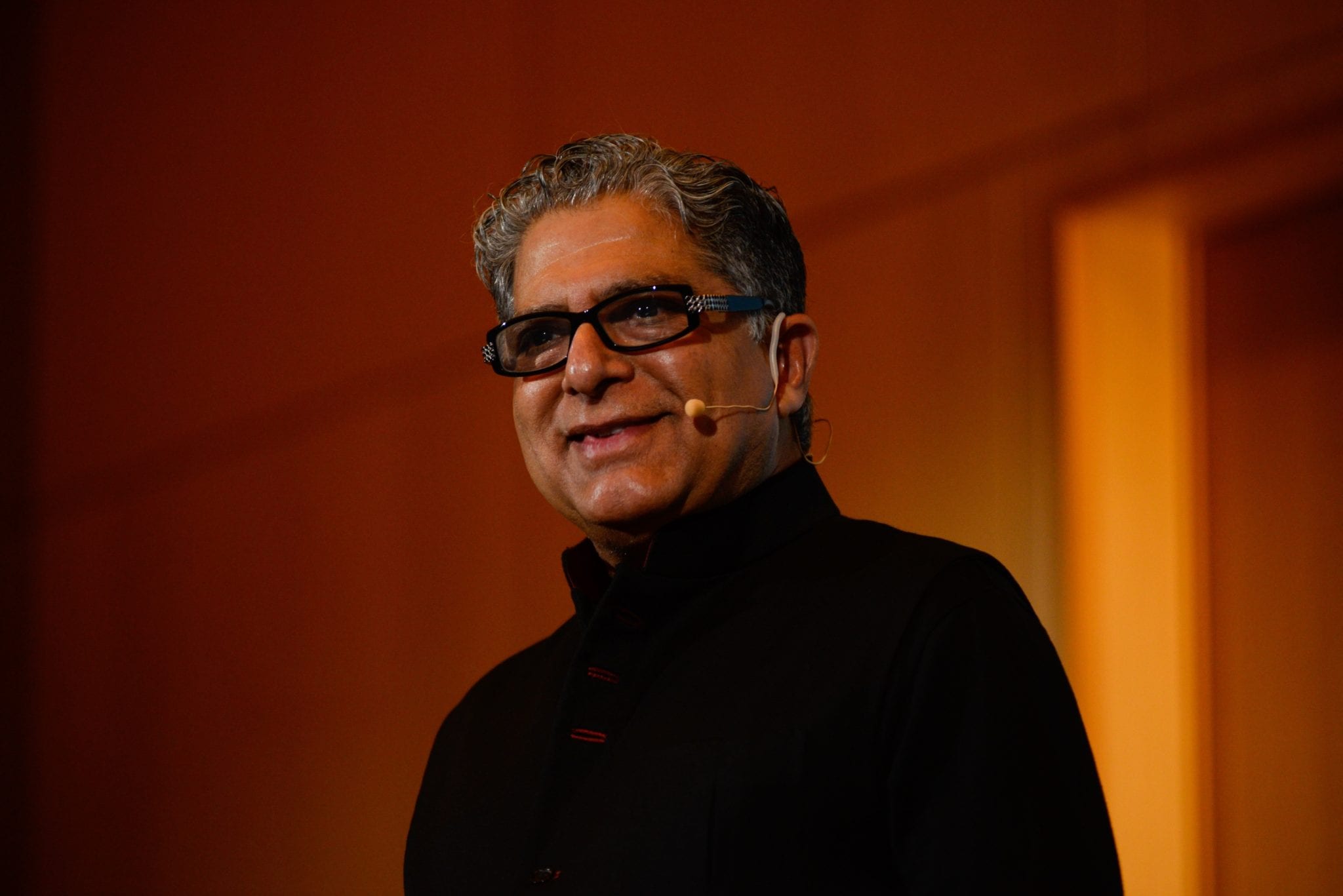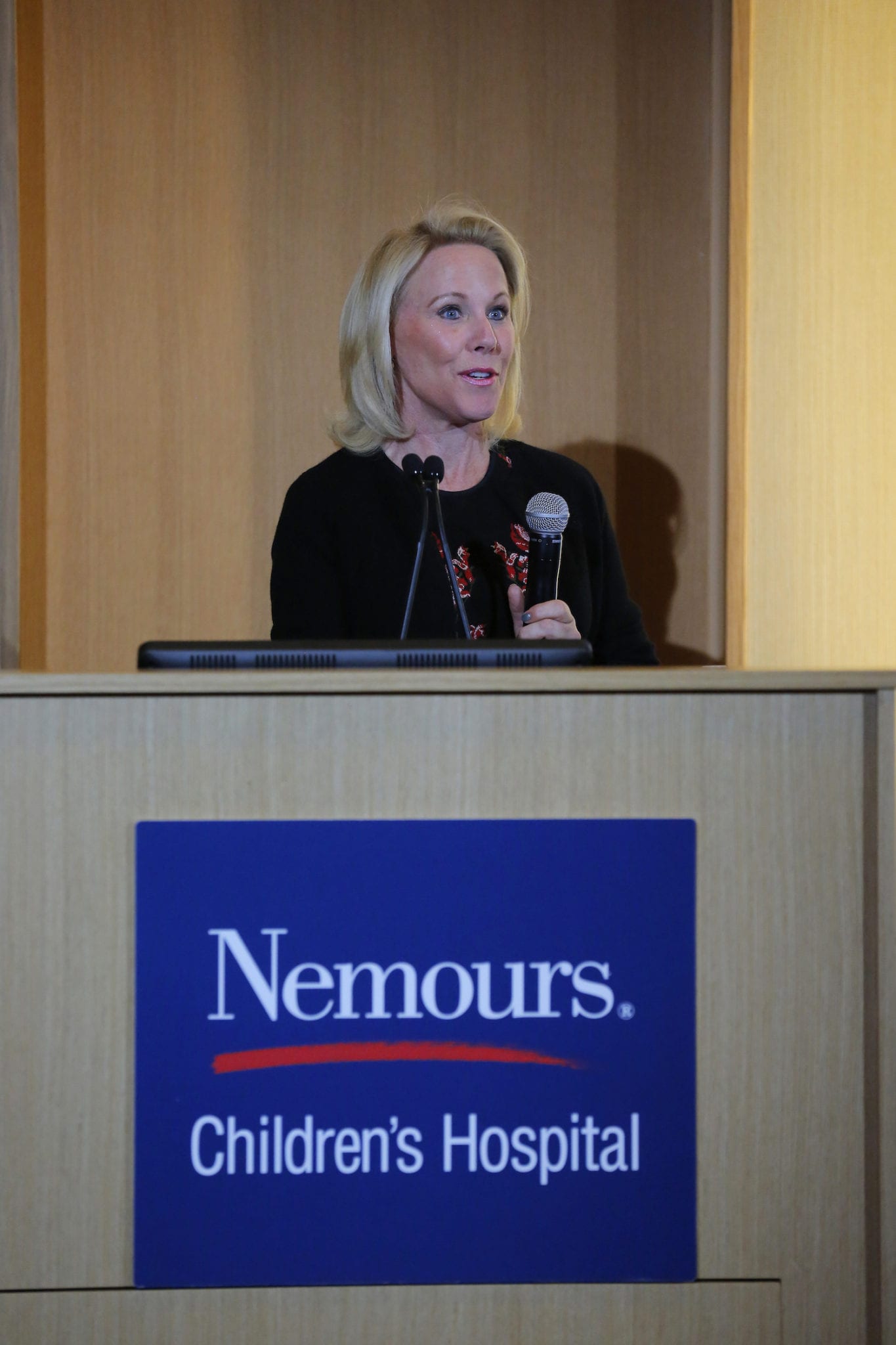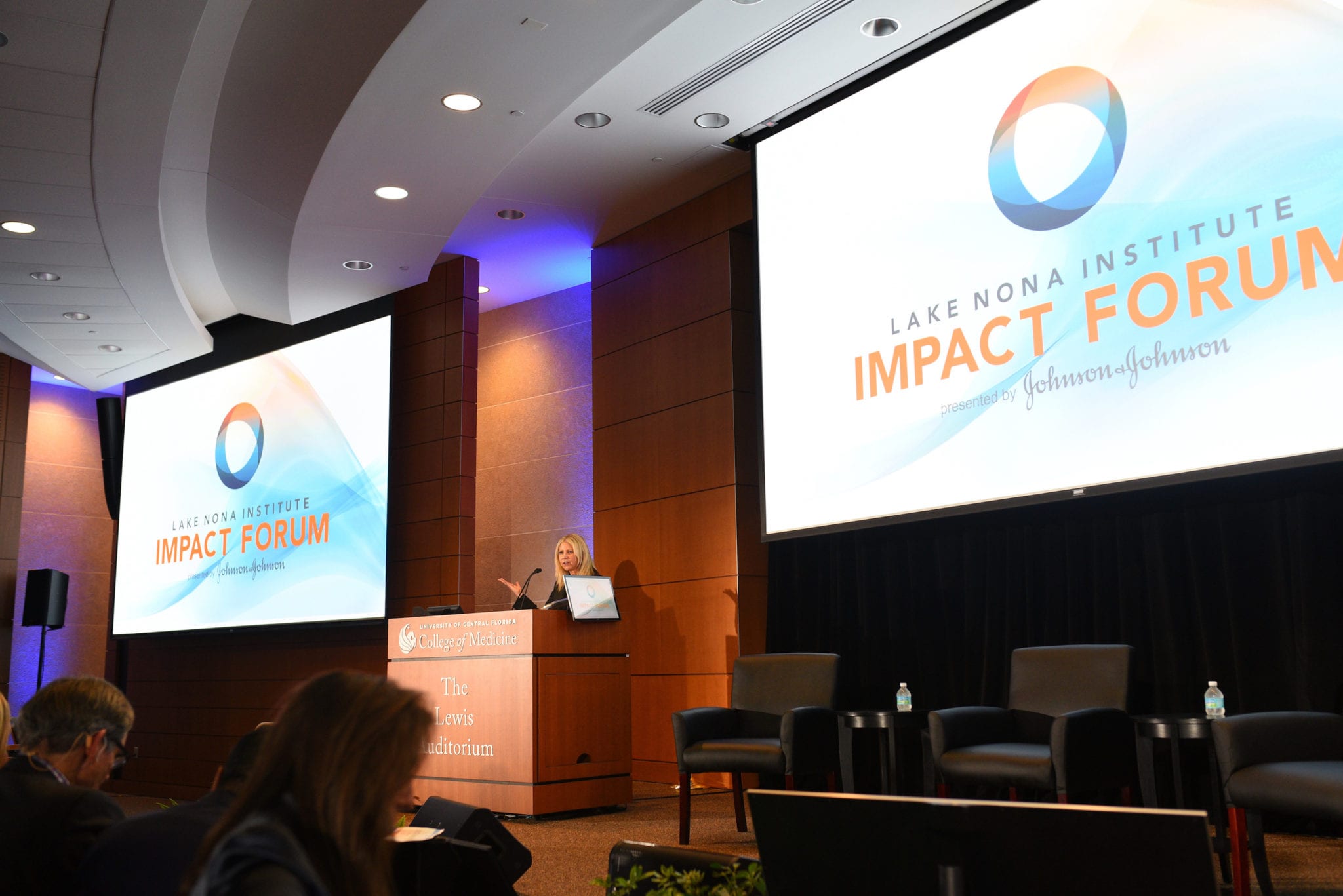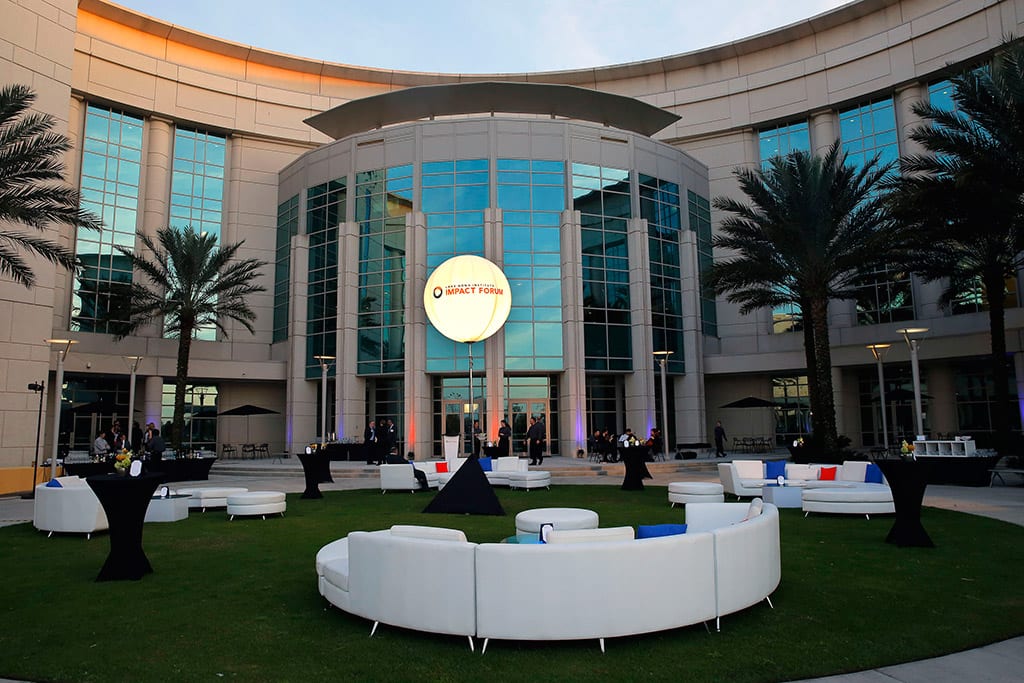The 4th annual Lake Nona Impact Forum concluded with a call to the innovators shaping future health technologies and the physical shape of our communities. Panelists included entrepreneurs from startup to Fortune 500 and researchers delving into the factors that truly make a community – and a population – healthy.
A core theme of Friday’s discussion focused on the challenges on innovation, celebrating those who took ideas and turned them to action. From the vast teams at PepsiCo and Nestle to how Pfizer sees collaboration as the road to patient-centric solutions, companies see the rise of individual “patient-activists” and “citizen-scientists” demanding a voice in their health and purchases. The R&D ecosystem continues to grow in unprecedented ways, with patient engagement and cross-industry collaborations bringing new approaches to tackling diseases. Innovation takes time and partnerships to be successful, panelists agreed, but transformative change requires entrepreneurs to bring new ideas together and bridge industries.
Health technology innovations is one area where that optimism is being realized. Singularity University’s Dr. Daniel Kraft detailed how health care is transforming from an intermittent, reactive process to a continual and proactive one. Technology is driving that process, he said, as is the preventative approach and growing on-demand technologies like 3D printing and telemedicine. The next step in health and prevention is patients owning their own data through advances in wearables and accessible diagnostics. Controlling personal data and health information allows patients to better shift their behavior, a process through which connected, digital health simply becomes “health.”
Improving those behavioral health factors should include considering our physical environments as well, says Dan Buettner, author of “Blue Zones: Lessons for Living Longer from the People Who’ve Lived the Longest.” His research identified the Power 9 lessons, covering the shared traits of the longest-lived people. Key among them are natural exercise, a sense of purpose, stress reduction, a thoughtful, primarily plant-based diet, and connection to family, faith and friends. While all communities may not be positioned to execute all nine perfectly, targeting changes in our choices and built spaces can have a dramatic effect on the health and happiness of our populations.
To fully transform health care, all of these changes discussed at the Impact Forum require action: better data collection, improved patient engagement, more powerful computing and strong new collaborations. The purpose of the Lake Nona Impact Forum is to keep these conversations going throughout the year, to prioritize and act upon them, test and refine them here at Lake Nona Medical City’s “living lab,” and make an impact on the world.





